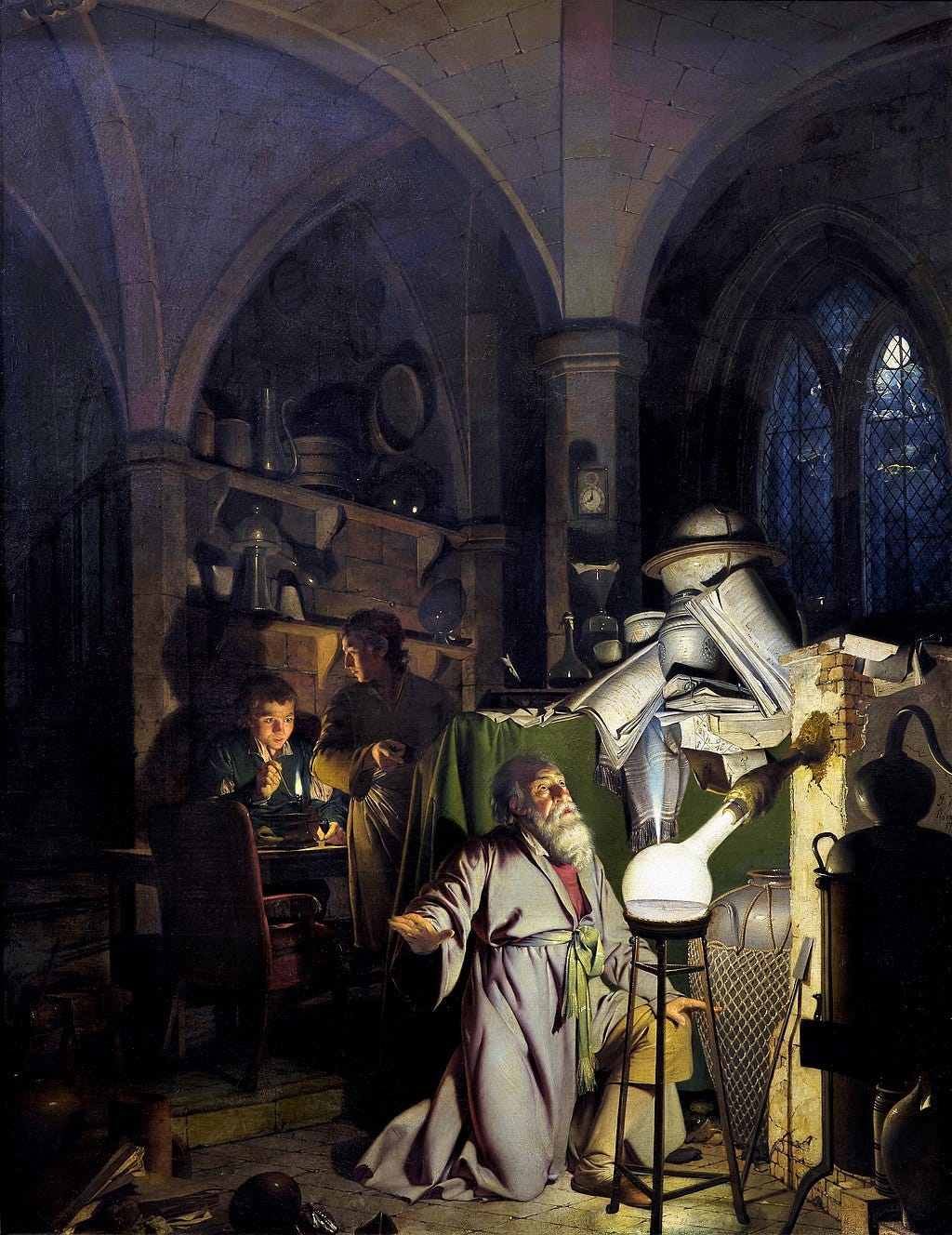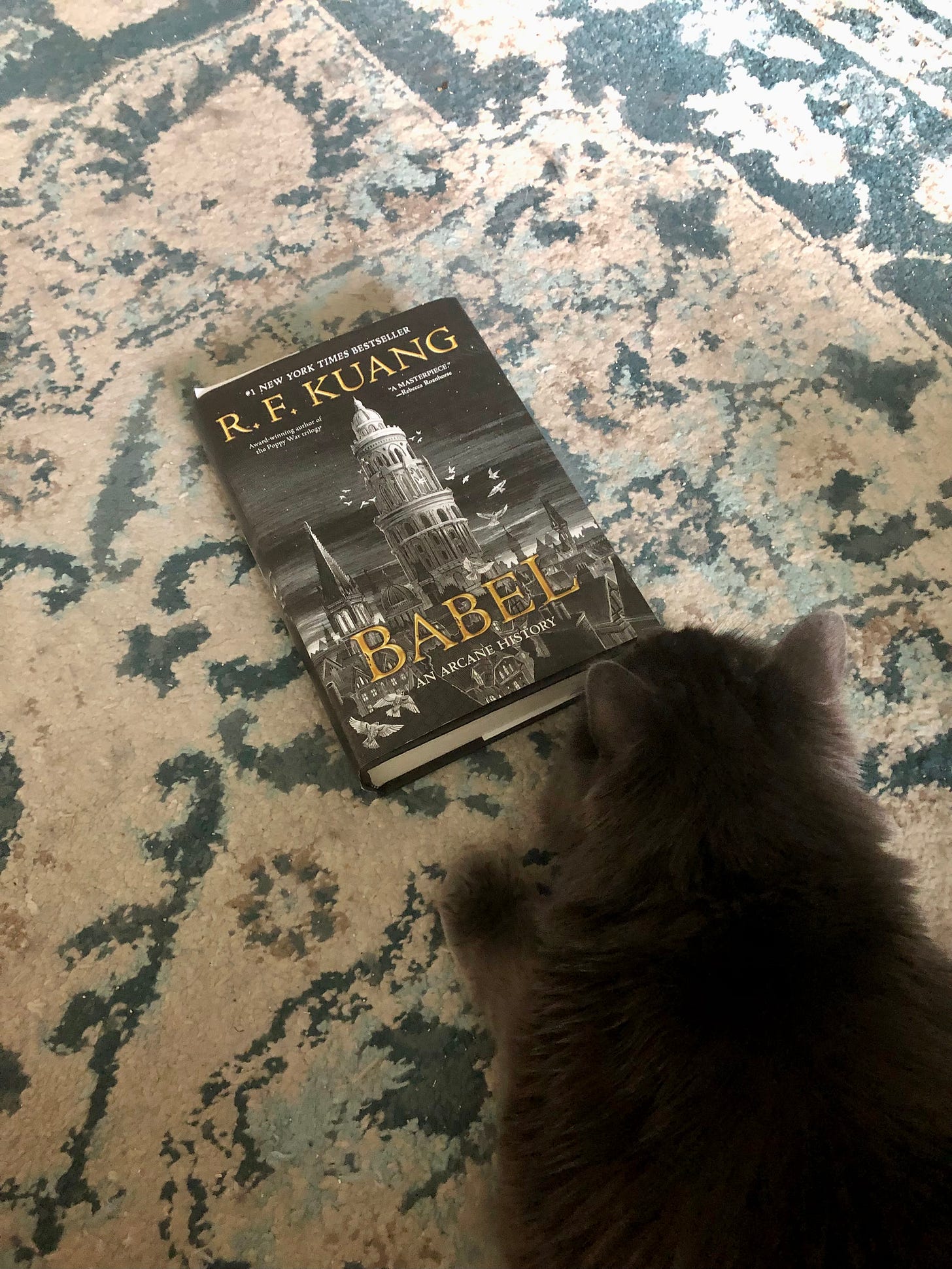Do you believe in magic?
Science and fantasy share a connection that is often skipped over in high school science history: Magic.
Howdy Friends,
Exciting news! Shelf Awareness gave a glowing review of Gator Country and said, “Science and nature journalist Rebecca Renner delivers an astounding story about an alligator-poaching operation in the Florida Everglades. Her adventurous, in-depth study probes the nature of crime and human character, while also mining the far-reaching consequences of what it truly takes to survive--in the wild and in society.” Woohoo!
To celebrate its fast-approaching publication date, Flatiron is giving away 25 copies of Gator Country, in partnership with Gators Daily, the #1 crocodilian influencer on Twitter. Enter to win your free copy here!
Maybe it’ll surprise some of you that as a science and nature journalist, one of my favorite genres to read and write is fantasy. However, science and fantasy share a connection that is often skipped over in high school science history: magic. Did you know that many of the fathers of modern science were alchemists? They left a lot of this out in your high school science history unit. You would be astounded.
As we inch closer and closer to the publication of Gator Country, I’ve found myself turning toward new projects to distract me from all the anticipatory anxiety. One of my favorite projects to work on in my free time is a fantasy novel I’ve been writing since I was 19 years old. I came up with the initial world concept for the story, which I’ll refer to moving forward as “Misrule,” in college when I was hanging out with my friend who was majoring in chemistry. Outside her lab, there was a painting on the wall, a small reproduction of The Alchemist Discovering Phosphorus by Joseph Wright (1795)
So I passed this painting every day, and one day, I stopped and looked at it for a long time, and I thought, What if—instead of turning into modern chemistry, alchemy had worked? That’s what happens in the world of “Misrule.” About 60 years before the book opens, an alchemist succeeds in turning lead into gold. But that feat itself isn’t what altered their world. It’s the power he harnessed to do it that changes everything.
Magic is far from fictional. In our reality, humans created magical rituals as a part of religious or spiritual beliefs as a way to enact change in their world with the help of supernatural powers. What powers differ according to the belief system in question, but they’re usually either gods, non-human supernatural entities, or the spirits of the dead.
By this definition—defining magic as a way to enact change in the physical world—science is quite literally the descendant of magic. Take the stranger-than-fiction case of John Dee, advisor to Queen Elizabeth I, mathematician, alchemist, summoner of angels, and possible chaotic bisexual. I’ll leave you to go down that rabbit hole on your own.
What I’m saying is that if magic never existed, there would be no science.
Most of the magical elements in “Misrule” will be almost scientifically possible, or at least I’m trying to make it that way, tapping into my obsession with the history of science and the anthropology of magic—and distracting myself from the anxious wait for my publication day to arrive.
So, do you believe in magic?
Thanks for reading,
Rebecca
I was trying to come up with just one favorite fantasy novel to recommend, and I overthought it for 18 hours because I couldn’t choose just one! Here’s a list of the 100 Best Fantasy Books of All Time. I’m currently reading Babel by R. F. Kuang, a book that grapples with student revolutions, colonial resistance, and the use of language and translation as the dominating tool of the British empire. Here’s the book’s description for those interested:
Traduttore, traditore: An act of translation is always an act of betrayal.
1828. Robin Swift, orphaned by cholera in Canton, is brought to London by the mysterious Professor Lovell. There, he trains for years in Latin, Ancient Greek, and Chinese, all in preparation for the day he’ll enroll in Oxford University’s prestigious Royal Institute of Translation—also known as Babel.
Babel is the world's center for translation and, more importantly, magic. Silver working—the art of manifesting the meaning lost in translation using enchanted silver bars—has made the British unparalleled in power, as its knowledge serves the Empire’s quest for colonization.
For Robin, Oxford is a utopia dedicated to the pursuit of knowledge. But knowledge obeys power, and as a Chinese boy raised in Britain, Robin realizes serving Babel means betraying his motherland. As his studies progress, Robin finds himself caught between Babel and the shadowy Hermes Society, an organization dedicated to stopping imperial expansion. When Britain pursues an unjust war with China over silver and opium, Robin must decide…
Can powerful institutions be changed from within, or does revolution always require violence? Read Babel to find out!
That’s all for this week, folks. Thanks for reading and remember to preorder your copy of Gator Country today!









I cannot tell you how much I have been looking forward to your book already, but this write-up has me extra excited. This is so in my wheelhouse!